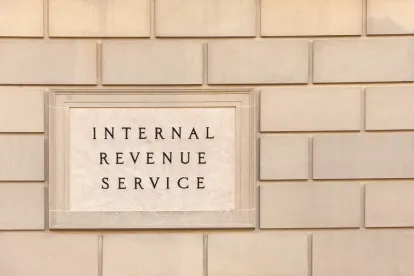On May 12, 2020, the IRS issued two notices affecting employee elections under Code Section 125 cafeteria plans. The COVID-19 pandemic and large-scale "stay at home" orders left many employers facing questions relating to elections employees made with respect to their health and dependent care benefits long before the start of the pandemic. The two notices, Notice 2020-29 and Notice 2020-33 permit, but do not require, employers to make certain changes to their Section 125 cafeteria plan documents, retroactive to as early as January 1, 2020.
IRS Notice 2020-29
Under Notice 2020-29, employers are provided with increased flexibility regarding mid-year election changes made under a Section 125 cafeteria plan for calendar year 2020 as it relates to employer-sponsored health coverage, health flexible spending arrangements (FSAs), and dependent care assistance programs (DCAPs). Unlike most IRS relief granted for other programs, the relief granted under this notice is not limited to those directly affected by the pandemic.
With respect to employer-sponsored health plan coverage, employers may amend their plans to permit employees to prospectively:
-
make a new election if the employee had initially declined coverage;
-
revoke an existing election for one type of coverage and elect a different coverage option available under the employer's plan; or
-
revoke an existing election without electing a different coverage option available through the employer’s plan, provided the employee attests in writing that they are enrolled, or will immediately enroll, in other health coverage not sponsored by the employer.
For health FSAs and DCAPs, employers may amend their plans to permit employees to prospectively revoke an election, make a new election, or decrease/increase an existing election, regardless of whether such election is consistent with any change in status.
In addition to the above, employers are permitted to allow employees with amounts in a health FSA or DCAP that will be forfeited as of the end of a grace period in 2020 or a plan year ending in 2020, to use those amounts for their designated purpose for expenses incurred through December 31, 2020. For example, if an employee has amounts that were carried over until March 15, or if the employee has amounts that will be forfeited upon a plan year ending June 30, 2020, the employer can permit the employee to extend the use of those amounts through December 31, 2020.
Lastly, the IRS also clarified that both the (1) exemption from the high-deductible health plan rules for use of telehealth services; and (2) coverage of expenses relating to testing and treatment of COVID-19 without a deductible by a high-deductible health plan, may be applied retroactively to January 1, 2020.
IRS Notice 2020-33
The IRS has modified Notice 2013-71 to increase the amount that may be carried over at the end of a plan year in a health FSA. Under the notice, the carry-over amount (currently $500) is increased by 20 percent to reflect the indexed amounts that can be contributed to health FSAs each year. For 2020, the amount that may be carried over into 2021 is $550 (20 percent of the $2,750 contribution limit). Under the Section 125 cafeteria plan rules, the carry-over limit must be adopted on or before the last day of the plan year from which amounts may be carried over in order to be effective retroactive to the first day of that plan year. Therefore, only those plans that incorporate the increase by reference or that are timely amended to set forth the increased amounts may begin applying the increased carry-over limit for a plan year beginning in 2020.
Separately, under current rules health plans such as premium-reimbursement plans or individual coverage health reimbursement arrangements may not reimburse medical care expenses that were incurred before the beginning of the plan year and qualify for exclusion from income and wages. Such expenses are generally treated as incurred when the covered individual is provided with the medical care giving rise to the expense, not when it is billed or paid. Under this notice, premiums for health insurance coverage can be treated as medical care expenses on (1) the first day of each month of coverage on a pro rata basis; (2) the first day of the period of coverage; or (3) the date the premium is paid. For example, an individual coverage health reimbursement account with a calendar year plan year may immediately reimburse a substantiated premium for health insurance coverage that begins on January 1, 2020, even if the covered individual paid the premium for the coverage on December 31, 2019.




 />i
/>i
